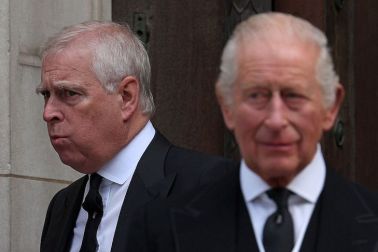May had brought up Labour’s anti-Semitism last week so she had a perfect excuse to mention it today. She didn’t. And that should worry Corbyn. She now regards him as an electoral liability who needs to be preserved. It’s nearly a year since she behaved like that.
Corbyn sheltered behind the safest of dead-safe topics. Funding on mental health. Unsurprisingly he wants more of it. He’s appalled that only six per cent of the budget goes on the mental problems of youngsters when they make up one fifth of the population. It doesn’t occur to him that kids might be happier than adults, not least because they’ve had fewer chances to listen to one of his speeches. But budgets are crucial to Labour’s world view. If money isn’t being spent on a problem then more must be invested until the snag is large enough to attract an army of state hirelings. That’s how Corbyn sees it. Millions of carefree youngsters are evidence that an epidemic of cheerfulness has broken out. And he must bring it to a halt. Happiness? It’s another scourge for the state to deal with.
Just calling for ‘more mental health professionals’ introduces a risk that he seems unaware of. All public workers, especially medics, are good in his eyes. He’s never met the shrink who makes his patients depressed in order to profit from their ill-health.
May diverted the question away from medics and towards social media. She said the internet was responsible for ‘bullying and harassment’ and that the psychological damage could last forever. The obvious solution – advising the bullied to go off-line – didn’t feature in her comments. But why would it? The tech giants are a useful enemy to be grappled with heroically, and virtuously, in public. Most of the Commons regards the internet in the same way. Several MPs complained that Cambridge Analytica and its satellites had unfairly influenced the referendum. The specific points raised were over alleged breaches of electoral spending law, and dodgy links between the Tories and the tech boffins. But the arguments came down to a single allegation: Facebook caused Brexit.
It’s called a no-brainer. Only somebody with no brain would believe it. There are plenty of MPs who suffer from this corporeal deficiency. Ian Blackford, Alan Brown and Caroline Lucas all gave the impression that gimmickry over the internet had converted Europhiles into Leave voters. They also maintain, one assumes, that Facebook turned lifelong democrats into zombie Trump supporters.
So why doesn’t Facebook rig other markets too? Imagine the money to be made from turning Evian-drinkers into Pepsi-fanatics. Mark Zuckerburg could destroy his main rival overnight by making Twitter-users delete their accounts. He doesn’t. Therefore he can’t. Therefore Facebook didn’t cause Brexit. Strange that MPs can’t understand this simple logic. Perhaps they have been brainwashed.







Comments